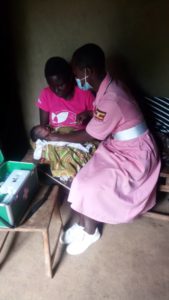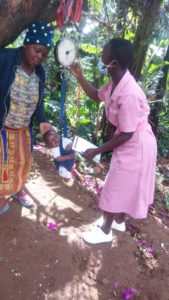When most people think of maternal mortality, they have images of a mother dying during childbirth. But did you know that 60 percent of all maternal deaths occur AFTER the delivery? Postpartum hemorrhage remains the leading cause of maternal deaths around the world.
Unfortunately, most mothers are sent home after their delivery and told to return for a checkup only 6 weeks after giving birth, even though most maternal and newborn deaths occur in the first week of the post-natal period.
That’s why maternal health experts say more attention needs to be paid to the so-called “fourth trimester”, or the three months after a delivery.
In low-income countries, this trimester is even deadlier, as mothers already face barriers to care such as poverty, distance to facilities and lack of transportation.
Save the Mothers is proud to be part of an innovative new partnership that meets mothers’ needs where they live, even if that happens to be a remote mountainous region in Eastern Uganda.
The “Post-Natal Care for You” project sends skilled attendants to make a series of house calls to a mother once she has delivered. They’re there to not only catch any potentially fatal complications, but to offer lactation services support, ensure hygiene and newborn care in what can be a vulnerable time for mothers.
Each midwife is given a kit with a smart phone to allow communication with representatives chosen in each remote village, who notify them when a woman in that community has delivered. The midwives also work in conjunction with the local diocese, which includes two Save the Mothers graduates, to build trust in health care professionals and educate villagers on safe motherhood practices.


In one region alone, 40 percent more mothers received post-natal care than had before. With each visit, more mothers are becoming aware of how important post-natal care is, which will affect their future pregnancies. This grassroots community model is replicable in other remote regions in East Africa.
By investing in leaders, and working in partnerships, Save the Mothers is multiplying its efforts to ensure every mother has access to adequate care, no matter where she lives.
Support us here.
